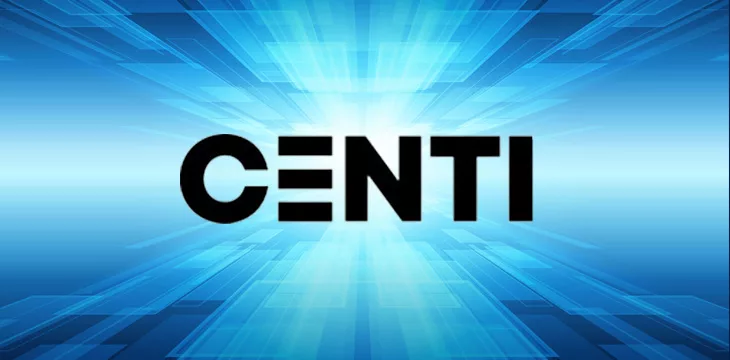|
Getting your Trinity Audio player ready...
|
Blockchain payments app maker Centi said it will expand its global micropayment solutions after completing a seed financing round this week. The Zurich, Switzerland-based firm’s deal was led by Archblock and Bloomhaus Ventures, with the investors saying they were on board with Centi’s vision of fintech innovation and world financial inclusion.
The name “Centi” itself, according to Co-Founder Bernhard Müller, comes from micropayments—in this case, the ability to process transactions as small as one cent. Centi’s 1:1 Swiss Franc stablecoin (CCHF), launched in March 2023, aims to attract merchants by combining the advantages of national currency cash with the ability to make tiny payments. Making such payments cost-effectively is impossible using credit cards or legacy financial system transfers.
Pascal Stürchler, Co-Founder and CEO of Bloomhaus Ventures, said: “Centi presents a highly intelligent solution to the global challenges posed by micropayments today. Leveraging our extensive global network, we are poised to offer valuable support in enabling Centi to extend its transformative solutions beyond Switzerland and into other international markets.”
Micropayments and financial inclusion are the backbone of Centi’s products. Its micropayments are aimed more at the B2B market, specifically in the area of content monetization. Creators can charge tiny amounts for access to single articles, videos, images, audio, or anything else without the need for costly subscriptions. Stablecoins fit in better with existing price and payment infrastructures and remove most merchant concerns surrounding digital asset price volatility.
As for financial inclusion, Centi’s app and access to various digital currencies (including stablecoins) allow anyone to get involved, even those who may not be able to have their own bank accounts or credit cards. This includes both younger people and those living overseas—although stablecoins are generally only available to people living in particular countries.
Archblock CEO Alex de Lorraine said, “Our investment signifies our belief in Centi’s potential to innovate in the fintech landscape. Our expertise in blockchain and digital currencies perfectly aligns with Centi’s approach.”
How micropayments and financial inclusion go hand-in-hand
Though we don’t hear much about it these days, micropayments and financial inclusion were also two of the initial promises for Bitcoin users. However, BTC was never able to scale properly thanks to its deliberately limited transaction block sizes of 1 MB, meaning users either pay massive transaction fees or face the prospect of transactions getting stuck or outright failing.
For example, the current average transaction fee on the BTC network costs US$28.12. A few days ago it was $38, and some have paid $50 or more. You’ll pay a lot more if you want your BTC transaction to get priority from network miners. The fees apply whether you’re sending $1 million or just a dollar, making any business model based on micropayments (one cent or less) impossible. With fees that high, BTC promotes financial exclusion more than inclusion—$30 for a single payment excludes a large percentage of the world’s potential economic participants.
Luckily, Centi uses the BSV blockchain which has restored the original Bitcoin protocol rules (with unlimited transaction block sizes) and, with it, Bitcoin’s original promises. Micropayments are no problem at all for BSV, which currently processes millions of transactions per day at around US$0.0001 each. A one-dollar, or even one-cent, transaction isn’t impossible on the BSV blockchain. In fact, it’s commonplace.
Smaller transactions mean more people can use the BSV blockchain network, which means (you guessed it) greater financial inclusion and economic opportunities for anyone in the world. BSV blockchain’s larger data processing capacity also means the ability to run programmed contracts, such as those on which Centi’s stablecoins are based. In the end, what you end up with is the best of two worlds: the convenience of familiar currencies for pricing and accounting with the speed and cost-efficiency Bitcoin proponents once promised.
Centi: Bridging digital money and traditional banking

 02-19-2026
02-19-2026 




